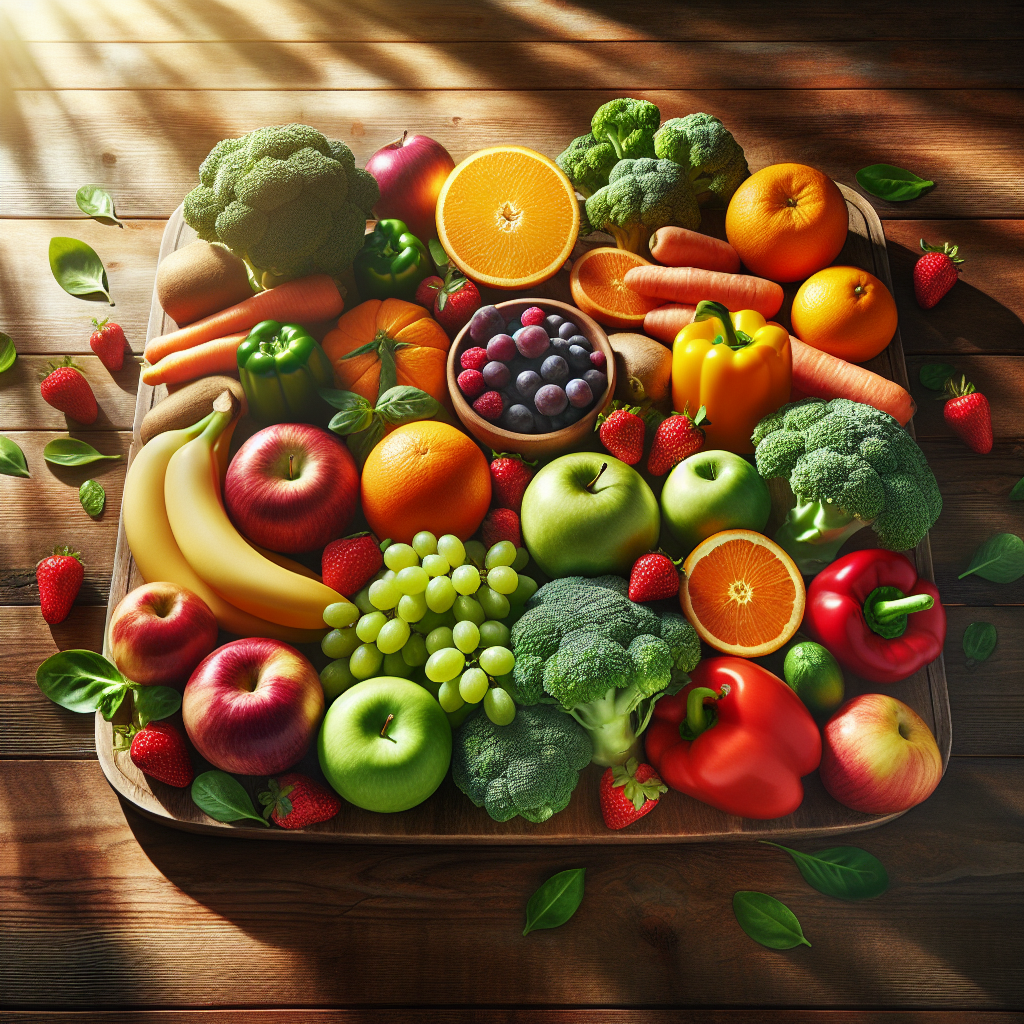Here is the complete article with all requested elements:
The Truth About Organic Food: Busting Common Myths
The organic food movement has gained tremendous popularity in recent years, but along with its growth comes numerous misconceptions. Consumers often hear conflicting information about what “organic” really means, whether it’s worth the higher price tag, and if it’s truly better for health and the environment. Let’s separate fact from fiction by examining some of the most persistent organic food myths.
Myth 1: Organic Means Pesticide-Free
One of the most widespread misunderstandings is that organic farming doesn’t use any pesticides. The truth is more nuanced:
- Organic farmers can use pesticides, but they must be derived from natural sources
- These pesticides are generally less toxic than synthetic alternatives
- All pesticides (including organic ones) must meet EPA safety standards
- Organic farms must demonstrate they’ve tried non-chemical methods first
The key difference is that organic farming prohibits most synthetic pesticides (with some exceptions) and focuses on prevention through crop rotation and other natural methods.
Myth 2: Organic Food Is Always More Nutritious
While some studies show higher levels of certain nutrients in organic produce, the differences aren’t as dramatic as many believe:
- A 2012 Stanford review found minimal nutritional differences between organic and conventional
- Some organic produce may have slightly higher antioxidant levels
- The nutrient content depends more on freshness and variety than farming method
- Soil quality affects nutrition more than organic vs. conventional labels
Where organic food shines is in what it doesn’t contain – synthetic pesticide residues and artificial additives.
Myth 3: Organic Farming Can’t Feed the World
Critics argue that organic methods produce lower yields and couldn’t sustain global food demands. However:
- Studies show organic yields can match conventional in certain crops and conditions
- Improved organic techniques continue to close the yield gap
- Organic farming often performs better in drought conditions
- Reducing food waste would make organic production more viable globally
The solution likely lies in combining the best of organic and conventional methods rather than choosing one exclusively.
Debunking Cost and Accessibility Myths
Myth 4: Organic Food Is Always More Expensive
While organic items typically cost more, the price gap isn’t as wide as many assume:
- Seasonal organic produce can be comparable to conventional
- Prices have dropped as organic has gone mainstream
- Buying in bulk or joining CSAs reduces costs
- The long-term health and environmental benefits may offset higher prices
Smart shopping strategies like focusing on the “Dirty Dozen” (produce with highest pesticide residues) can make organic eating more affordable.
Myth 5: Organic Food Is Only for the Wealthy
While cost barriers exist, organic food is becoming increasingly accessible:
- More conventional stores now carry organic options
- Farmers markets often have competitive organic pricing
- Some government programs help lower-income families access organic
- Growing your own is the most affordable organic option
The perception that organic is elitist stems more from marketing than reality in today’s marketplace.
Environmental and Health Myths Clarified
Myth 6: Organic Farming Is Always Better for the Environment
Organic practices generally have environmental benefits, but it’s not black and white:
- Organic farms typically use less energy and produce less pollution
- They promote biodiversity and healthier soils
- However, some organic methods require more land for equivalent yields
- Transportation emissions affect organic and conventional equally
The most sustainable choice combines organic principles with efficient production methods.
Myth 7: All Organic Food Is Healthy
Organic junk food still exists! Keep in mind:
- Organic sugar is still sugar
- Organic processed foods can be high in calories and low in nutrients
- The organic label doesn’t guarantee ethical labor practices
- Reading ingredient lists remains essential
Organic is a production method, not an automatic health guarantee.
Making Informed Organic Choices
Understanding these myths helps consumers make better decisions about when organic matters most. The USDA’s organic certification ensures:
- No synthetic fertilizers, sewage sludge, or irradiation
- No genetic engineering
- Animals must have access to outdoors and organic feed
- Regular inspections of operations
While organic food isn’t perfect, it represents an important step toward more sustainable agriculture. The key is approaching organic claims with informed skepticism rather than blind faith in marketing.
By understanding the realities behind common organic myths, consumers can make choices that align with their health goals, budget, and environmental values. Whether you buy all organic, some organic, or none at all, what matters most is eating plenty of fresh, minimally processed foods.
